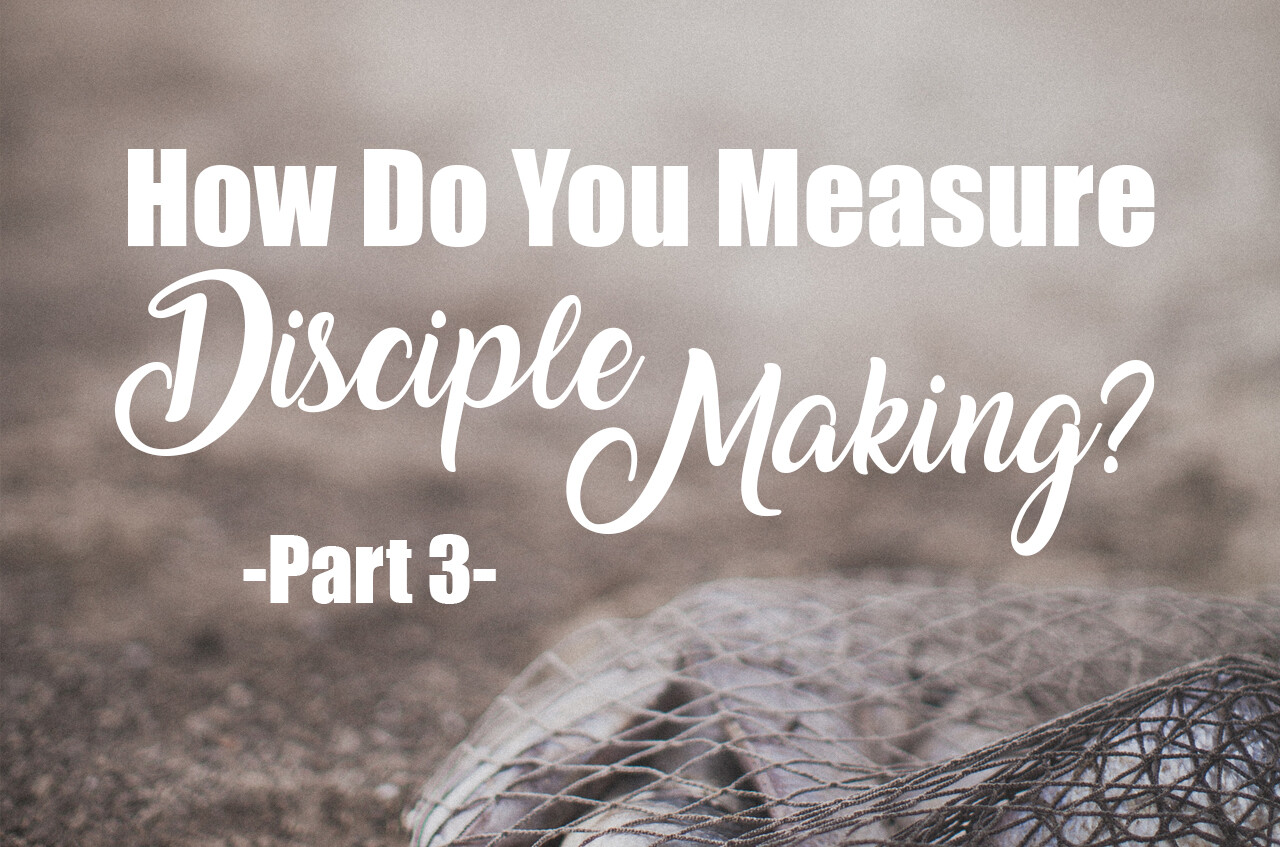
We’ve taken a look at some of our assumptions about discipleship and whether or not those assumptions align with Jesus and how he approached disciple making. We’re still left with the question: How do you know whether or not you’re making disciples?
I’d like to offer a couple of important places to start – particularly if we’re going to move beyond some of our assumptions about disciple making. How do you know whether or not you’re making disciples? Are people moving from unbelief to belief in Jesus? Are people leading others from unbelief to belief?
What does it look like to move from unbelief to belief? There are tons of examples of from Jesus’ ministry. Take the apostles and their journey with Jesus. A major part of Jesus’ time with the apostles was simply deconstructing what they thought they understood about God and the nature of His coming kingdom. This is why Jesus would often use the phrase “You have heard it said”… “but I say to you”. He was reorienting their understanding of their faith and what it meant to follow God. Think about Peter’s story – one moment he’s declaring that Jesus is the Christ and the next moment he’s “correcting” Jesus for talking about the cross. The night Jesus was betrayed Peter boasts about how he’ll fight for the Lord only to find himself denying Christ hours later. After the resurrection we see a more mature apostle Peter who was bold and fearless and devoted to following Jesus regardless of the cost. He had moved from unbelief to belief. It wasn’t neat or clean, but you can certainly see a difference from Matthew to the book of Acts.
Belief in Jesus is more than just an intellectual assent to certain facts about Jesus such as “I believe Jesus was the Son of God.” It’s strongly tied to the obedience piece we explored through the last two parts. Peter had moved from unbelief to belief in Jesus and it showed in the way he lived his life.
This moving from unbelief to belief is a process and a journey. That’s why discipleship starts long before someone ever decides to follow Jesus. The apostles had ideas about what it meant to follow God or to be a righteous person in their day. Jesus unpacked most of those understandings and reoriented their understanding to the truth of His kingdom and His righteousness. We need the same today. Most people have ideas about God and what it means to please Him (and a lot of those ideas are off-base). You and I have a lot of ideas about God that are off base and those ideas often keep us from following Him faithfully. We have to move from unbelief to belief. When we do, it shows up in the way we live our lives: surrendered to His will instead of our own.
If people are moving from unbelief to belief in Jesus, then there’s a good chance that discipleship is actually happening. Another key sign of discipleship is seen through multiplication. Are people helping others move from unbelief to belief? Who’s following Jesus today because of your work or influence in their life? Who would point to you and say that it was your influence, teaching, example or encouragement that helped them move from unbelief to belief in Jesus?
Are these the only two signs that discipleship is happening? Probably not, but I think they provide a good place to start. Am I a disciple of Jesus? Am I moving from unbelief to belief in Christ that is proven true through increasing obedience to Jesus? Am I helping others move from unbelief to belief in Jesus? Can our congregation identify proof of how people are moving from unbelief to belief in Jesus and helping others to do the same?
These are probably more difficult to measure than just simply who shows up, but I think it’s worth the effort. What are some of the stories from your own life where you can see how you’ve moved from unbelief to belief in Jesus? What are some of the examples you see from your congregational community? What are some of the stories that need to be told that give evidence of helping others move from unbelief to belief?
Is there evidence of disciple making in your own life and the life of your congregation?
Christ’s Peace,
Lance
CGGC eNews—Vol. 15, No. 37





Login To Leave Comment